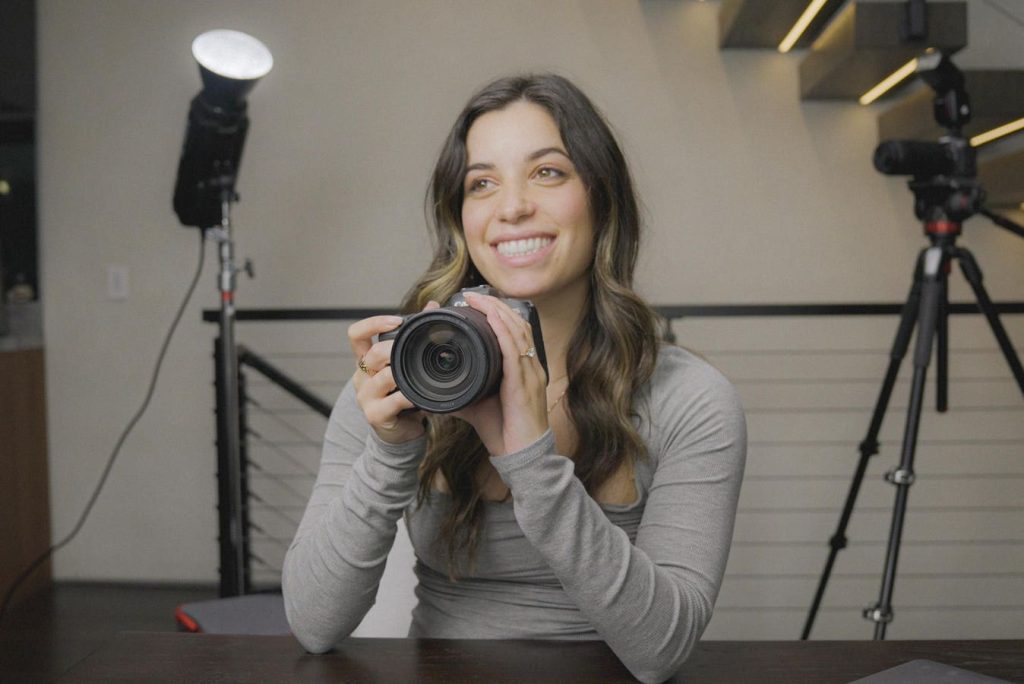Allow me to regale you with an anecdote that neatly ties with this piece.
For as long as I can remember, I’ve been a foodie. I’ve long loved watching cooking shows on PBS and Food Network, as well as experimenting in the kitchen myself. Many moons ago, I applied and was accepted into culinary school, at the now-shuttered Le Cordon Bleu academy in downtown San Francisco. Owing to my lifelong sweet tooth, I aspired to become a pastry chef. Suffice it to say, I never made it to culinary school—but I’m not wistful about it. As I’ve gotten older, I’ve come to the realization that one would be hard-pressed to find an industry as ableist as the food industry. The disdain for processed foods and pre-prepped ingredients. The idea that “anyone” can cook at home in a half-hour or less. The downright hatred for fast-food businesses like McDonald’s. All of these missives have some kernel of truth to them, yet far too many chefs and television personalities conveniently gloss over reality. Not everyone is able to properly prepare their mise en place or has the kitchen setup to rapidly prepare meals. Not everyone can afford much more food than value meals at McDonald’s. The bottom line is the idea that ostensibly anyone can cook so-called “proper” food is a fanciful tale told by those more privileged, especially ably so, than most.
For Emma Leventer, the food world shouldn’t be owned by some gastronomic illuminati. For her, food should be egalitarian.
“I truly believe that anyone can cook. It’s not reserved for just a select few. But I’ve noticed that many people feel intimidated by the idea of stepping into their kitchen and experimenting with new ingredients, tools, or equipment. And that’s where I come in,” she said to me this week in an interview conducted via email. “My mission is to show people that cooking doesn’t have to be a hassle or a scary thing. I’ve carved out my own little niche in the kitchen, which I call ‘lazy cooking.’”
Leventer, whose Inspired Foody Instagram account boasts more than 85,000 followers, didn’t get into cooking by choice in the beginning. She explained “everything changed” for her during her sophomore year at Duke University, when a friend asked her to assist with making a food-related video. With YouTube as her guide, Leventer essentially taught herself to be a videographer as she experimented and play around with lighting in her apartment. “Who knew smoothies could look so appetizing from a top-down angle?” she said.
After helping her friend, word quickly spread around campus that Leventer was the It Girl for food advice, ranging from grocery shopping to date ideas to simple recipes. In fact, it was these experiences that inspired her to start Inspired Foody. She had the motivation to help college students “gain confidence to step foot in their kitchens and eat.”
Leventer has created material for such organizations as BuzzFeed, KitchenAid, Nutribullet, and more.
“It’s funny how life works sometimes. My interest in food wasn’t something I actively pursued—it just happened to fall into my lap. And boy, am I grateful for it,” Leventer said of finding her life’s work in food. “I never realized at the time that food would become my true passion, the place where I belong. Who wouldn’t want to play with food and then have the pleasure of eating it? It’s like a dream come true!”
She continued: “Food has this incredible power to bring people together. Whether it’s sharing a delicious meal, hosting a cozy dinner party, meeting up for happy hour, exchanging recipes, or even indulging in some good old binge-eating, food is always there, connecting us all. I feel incredibly lucky to be a part of that story. Being able to create and share in the joy of food is a privilege I don’t take for granted. It’s a universal language that transcends borders and cultures, and I’m grateful every day that I get to be a part of this beautiful journey.”
When asked about making food more accessible to the disability community, Leventer told me she believes anyone can cook. She has noticed there’s a degree of intimidation for people when it comes to the kitchen, what with the myriad pieces of equipment, using dangerous objects like knives, and other factors. For disabled people in particular, she feels making recipes approachable and accessible to is “an important aspect of inclusive cooking.” Recipes may not be considerate of every type of disability, but nonetheless, she believes “there are steps we can take to provide support and aid to make cooking more enjoyable and achievable for everyone.” One approach Leventer has taken to achieve this is by visually demonstrating recipes in her “top-down” video format. She likens it to having a personal guide with you in the kitchen, giving you step-by-step direction; this method can be beneficial to people with certain disabilities that make following written instructions difficult, she said. Additionally, Leventer believes her so-called “lazy cooking” methods are ideal for people who get easily distracted or have shorter attention spans. “Simplifying the cooking process and focusing on quick and easy techniques allows individuals to stay engaged and follow through with the recipe without feeling overwhelmed,” she said.
Above all, accessibility is, like with computer software, crucial to success.
“While these approaches are just a starting point, I believe that continually exploring new ways to make recipes more accessible is crucial. It involves considering various factors such as adaptive cooking tools, alternative cooking methods, and even incorporating assistive technologies or apps specifically designed for individuals with disabilities. Ultimately, the goal is to ensure that everyone, regardless of their abilities, can experience the joy and satisfaction of cooking. By embracing inclusivity and finding innovative solutions, we can create a more accessible and welcoming culinary world for all,” Leventer said. “Ultimately, the goal is to ensure that everyone, regardless of their abilities, can experience the joy and satisfaction of cooking. By embracing inclusivity and finding innovative solutions, we can create a more accessible and welcoming culinary world for all.”
Of course, technology plays a pivotal role in culinary success regardless of ability. While most chefs and food lovers associate tools like blenders and food processors as paragons of convenience and efficiency, the truth is they also make cooking more accessible. For someone who lacks the visual and/or fine-motor skills to safely and effectively use a knife, a food processor can be a much more accessible way to slice, dice, or chop, say, mirepoix for a soup. For Leventer, she explained technology has been a “game-changer” in terms of broadening her audience and reaching more people on social media and on her website. There’s also an element of humility in it, because she’s able to keep learning and growing by keeping up with the latest trends and more. Leventer doesn’t presume she’s an all-knowing oracle of food. She’s always learning.
“Technology has expanded my reach, connected me with a diverse audience, and provided endless learning opportunities,” Leventer said. “It’s a tool that fuels my passion and allows me to connect with people in a meaningful way through the universal language of food. And I couldn’t be more grateful for the incredible possibilities it brings to my journey.”
Feedback-wise, Leventer said emphatically the most gratifying aspect of it she receives is the many “thank you” messages she gets from followers. She is hellbent on presenting herself with the utmost authenticity, which she told me is evident in elements like food styling and recipes themselves. “I firmly believe that food should be approachable and delicious. It shouldn’t be intimidating or complicated,” she said. “When I hear my work has inspired someone to step into the kitchen, try a new recipe, or explore their own culinary creativity, it fills my heart with joy. Knowing that I’ve made a positive impact and helped someone discover the joy of cooking or try a new menu item is incredibly rewarding.”
Leventer went on: “Ultimately, the feedback I receive reinforces my belief that connecting through food is a powerful and universal experience. It motivates me to continue sharing my passion, providing valuable content, and inspiring others to create delicious memories in their own kitchens.”
Looking towards the future, Leventer said she’s focused on mentoring and teaching. She’s a believer in the idea that her lived experiences a young woman, a new mom, a business owner, and more all contribute positively to her work. She has more to give to the world, to make more of a dent in the universe that would make Steve Jobs smile. She has aspirations to do more public speaking vis-a-vis food-oriented panels, and a childhood dream of hers is to publish her own cookbook.
“By sharing my experiences, lessons learned, and practical guidance, I hope to inspire and support others in their own journeys of self-discovery, creativity, and growth,” Leventer said of her future hopes and dreams. “My ultimate goal is to foster a community where people feel encouraged, confident, and excited to explore the art of cooking.”
Read the full article here










